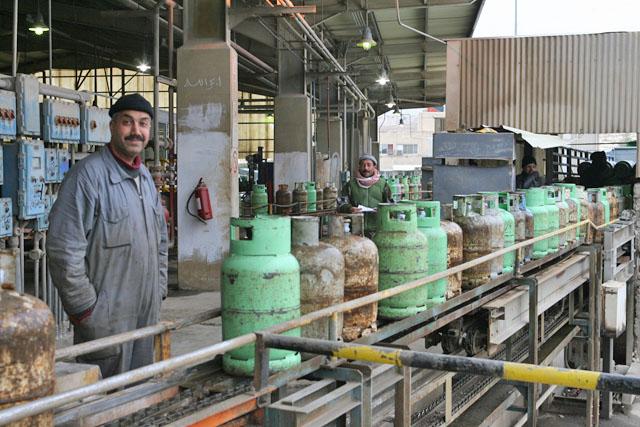AMMAN — The Lower House Integrity and Transparency Committee on Monday held a meeting to discuss the controversey of gas cylinders imported from India, the Jordan News Agency, Petra, reported.
The gas cylinders, estimated at 250,000 units, have been a hot topic in the local media as the director general of the Jordan Institution for Standards and Metrology (JISM), Haydar Al Zaben, has reportedly said they do not meet local standards.
Zaben was quoted by news websites and newspapers as saying that he had received phone calls from “several influential people” in the country to allow the “suspicious” shipment into the local market.
During the House panel meeting on Monday, attended by Jordan Petroleum Refinery Company (JPRC) CEO Abdel Karim Alawin, MP Mustafa Rawashdeh underlined the “sensitivity” of the issue as it is related to citizens’ lives, stressing that “no product should enter the local market without passing required tests.”
Alawin said the consignment was imported upon a tender floated to cover local market needs, adding that four companies had submitted bids and the Indian company was selected for its offering the least cost, Petra reported.
“The company was tentatively chosen until it passed the final test results,” he said, noting that the shipment will not enter the market if it does not meet local standards.
Alawin underlined that the JPRC does not have the authority to approve or deny the entry of the shipment; only the government does.
Rawashdeh (Karak, 5th District) said the committee will hold another meeting with the Royal Scientific Society, JISM, JPRC and the staff who went to India for an in-depth briefing on the details of the issue, according to Petra.
In earlier remarks, Alawin said “the JPRC was given the green light from JISM and its accredited testing lab to sign a contract with the Indian company to import gas cylinders,” adding that these two agencies sent their technical staff to the Indian manufacturer before floating the purchase tender.
He said JISM and its accredited testing lab supervised the rehabilitation of the Indian company’s production lines to export gas cylinders to Jordan, attributing the negative test results to the failure to provide suitable samples.
Alawin also said that the government has formed a committee comprising the head of the Lower House Energy Committee, the president of the Gas Stations Owners Association, the JISM director, the dean of the University of Jordan’s engineering faculty and the director of the Energy Ministry’s oil derivatives department to supervise the laboratory tests on the samples from the shipment conducted by a German firm.
He added that the entry of the Indian gas cylinders to the local market will be based on the results of the technical test conducted by the German lab, which is accredited by the European Union and also JISM.
However, in statements made in response to Alawin’s remarks, Zaben said the JISM tests that were conducted in local and international labs were accurate, and the cylinders will not be allowed to enter the local market.













